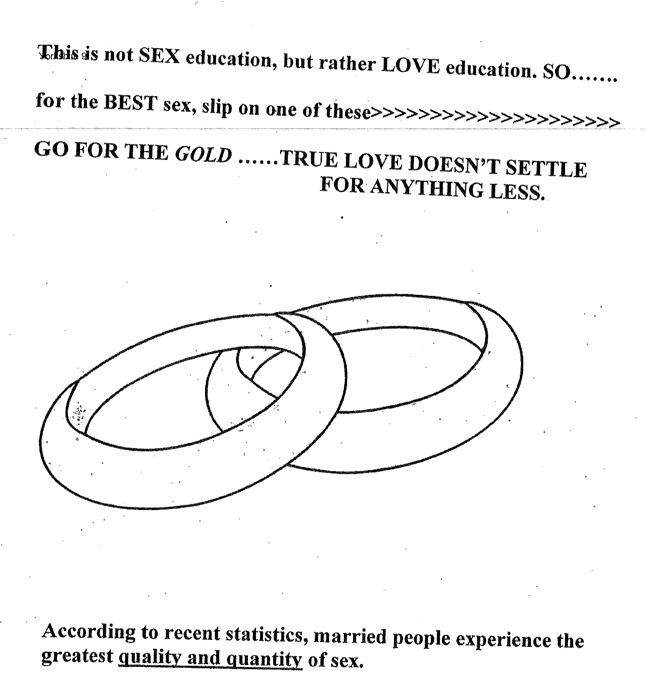NYCLU on Violent Crackdown of Pro-Palestine Protests at Columbia and City College
Civil Liberties Union
Many public school districts across New York State provide sex-ed instruction that is inaccurate, incomplete and biased, according to a report released today by the New York Civil Liberties Union that analyzes sex-ed materials that have been used in 82 public school districts.

“Our study shows that the lack of binding statewide sex-ed standards is compromising the health and well-being of our young people,” NYCLU Executive Director Donna Lieberman said. “Every day in public schools across the state, students receive sex-ed instruction that leaves them unprepared to make healthy, informed choices about sex. New York must reverse this failure and ensuring that our schools provide comprehensive, medically accurate and age-appropriate and bias-free sex ed.”
The report, Birds, Bees and Bias: How Absent Sex Ed Standards Fail New York’s Students, examines sex-ed materials used during the 2009-2010 and 2010-11 school years. The NYCLU sent freedom of information requests for the materials to 108 districts statewide; 26 provided too little information and were excluded from the study. New York City, which recently adopted a citywide sex-education mandate, was also excluded. The total number of students enrolled in the districts surveyed, about 543,000 students, represents about half the enrollment in the state’s schools, outside of New York City.
“It’s shocking what passes for sex ed in some New York classrooms,” said NYCLU Assistant Advocacy Director Johanna Miller, a co-author of the report. “We found lessons that contained glaring inaccuracies about basic anatomy, reinforced negative gender stereotypes, and stigmatized LGBT students and families. Many school districts do little to educate students on how to protect themselves from sexually transmitted infections and sexual assault. Rigorous, binding statewide standards are essential to fix these rampant failures.”
Among the NYCLU’s key findings:
“Ignoring or stigmatizing same-sex relationships in sex-ed instruction puts LGBTQ students at risk,” said NYCLU Senior Litigation and Policy Counsel Melissa Goodman, a co-author of the report. “Not only does it deprive students of information they need to make healthy choices, it creates an unwelcoming and intimidating environment for young people who often already face hostility at school.”
HIV instruction, required by state law since 1987, is the most consistently robust element of sex education in New York State; 93 percent of districts provided instruction about HIV/AIDS and how it is transmitted, but only 56 percent offered complete and scientifically accurate information.
New York State does not require general sexuality education, leaving vast gaps in skills, awareness and knowledge that risk great potential harm. According to the Centers for Disease Control and Prevention, 44.5 percent of New York’s male high school students and 39.6 percent of female students are sexually active – but 1-in-3 sexually active boys report that they don’t use condoms, and about 8-in-10 sexually active girls say they don’t take birth control pills. According to the New York State Department of Health, about 1-in-3 of new sexually transmitted infections diagnosed in New York each year occurs among residents 19 and younger.
State health instruction guidelines published in 2005 specifically address sexuality and sexual health, but these guidelines are not binding on school districts, and do not recommend specific curricula or instructional materials. More rigorous national standards issued in 2012 are not binding on New York school districts or individual schools.
Among its recommendations, the NYCLU calls on the State Education Department to amend the Commissioner’s Regulations on health education to require comprehensive sexuality education in the public schools – or set rigorous, binding standards for voluntary sex-education curricula –to ensure that young people have the foundation, skills and knowledge to support a healthy and productive future.
New Yorkers widely support comprehensive sex ed. In a 2009 poll, 87 percent of New York voters said it was important that public schools provide sex education to students. A 2011 poll showed that more than three-fourths of New York voters favor teaching comprehensive sex education. Moreover, the nation’s leading medical, public health and education associations support it.